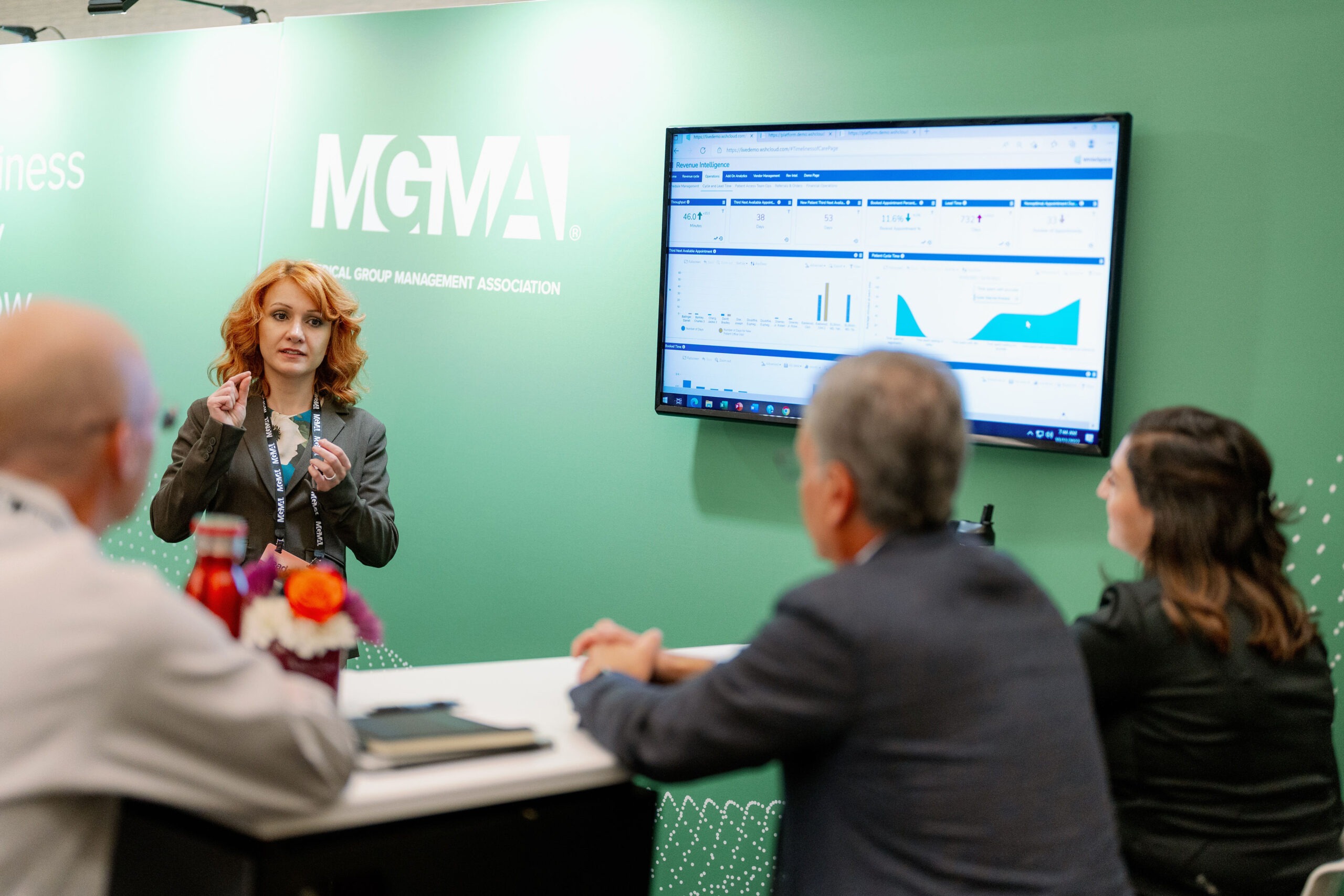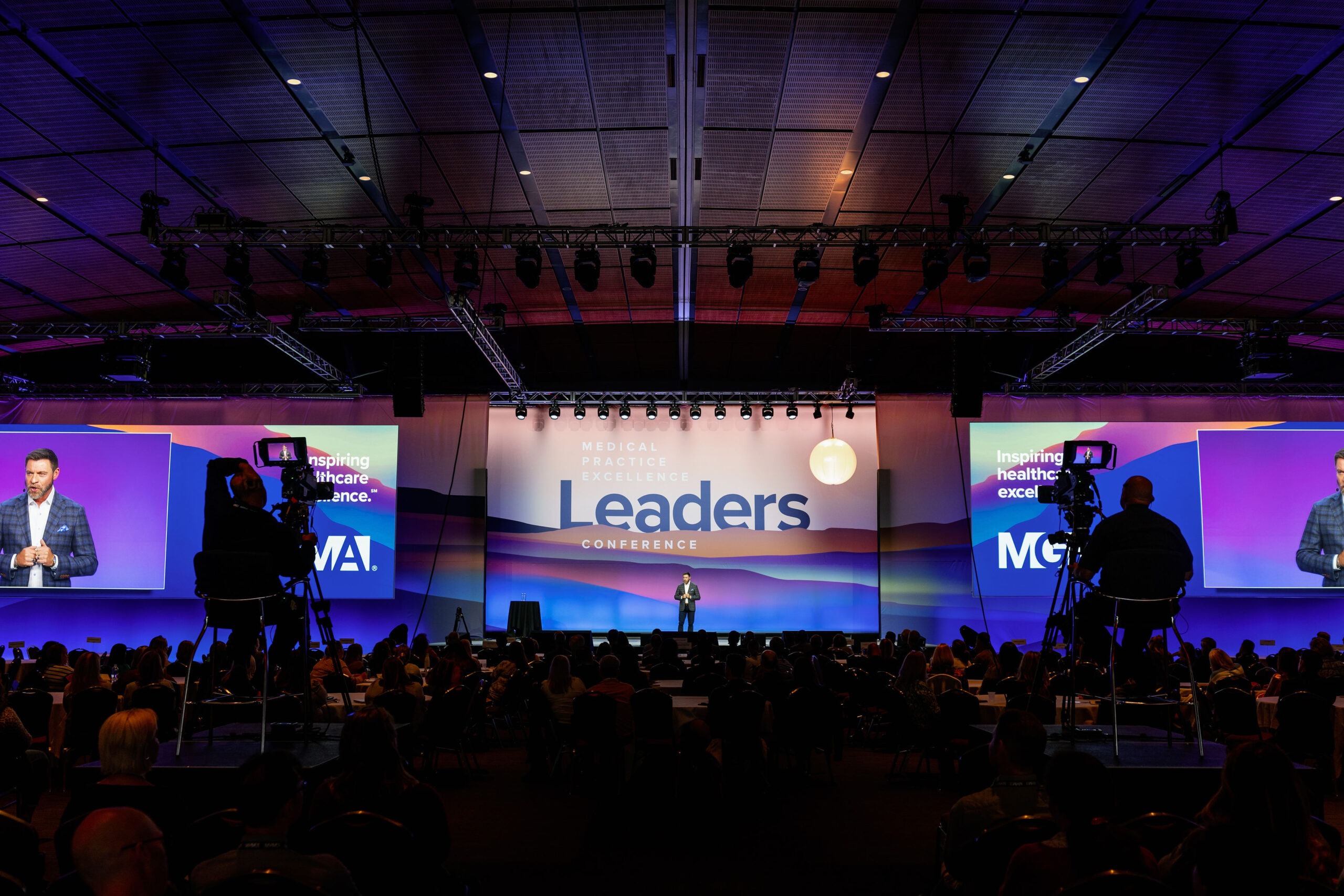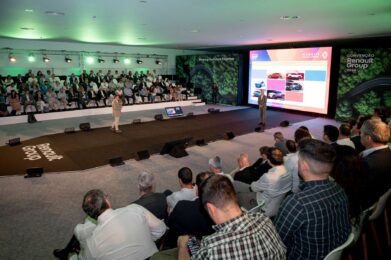It didn’t always go by the name Leaders Conference.
Medical Group Management Association (MGMA) is hosting its annual 2023 conference at Nashville’s Music City Center with a change in how it approaches the in-person event. The association recently called for a rebrand of what was once called Medical Practice Excellence Conference: Leaders Conference, dropping the first half of the name in an effort to attract the first element of the conference, namely, the leaders in medical practices.
“It can be anyone from a CEO all the way down to a frontline manager,” says Andrew Swanson, senior vice president of project strategy and sales at MGMA. “We know they have differences in how they need to connect and what they need to connect about. So, putting line staff in medical practices next to leaders created a dissonance with our attendees, and in the content and discussions we were fostering resonated with some but not with others, and vice versa.
“What we said is we just need to be a little bit more homogeneous about the attendee who comes, make them all leaders and then we can all be talking about similar things, and everybody will be on the same playing field. So that’s kind of where we started the conversation, and then everything about the meeting spun off of that.”
What about that line staff who are no longer in the Leaders Conference? Swanson says it was heard around the medical practice business that employers were no longer funding line staff to go to face-to-face conferences. With this knowledge, MGMA decided to shift its digital event space to give more attention to those who are no longer attending in-person events.
“If I’m a computer programmer, outside of the healthcare space, then I need to go learn about the best and brightest things going on in programming, right? Not necessarily leadership development,” Swanson says. What the team agreed on is they can use the digital space to deliver this expertise.
For those C-suite positions, this presents a bit more flexibility and options regarding what said chief—financial, operations, executive—officer has regarding event choice. The CEO can attend the Leaders Conference, the digital event or both. “What do you want to get out of either event?” he asks. “If you want to talk to chief financial officers, or other leaders, about being a leader inside of a medical practice, come to the Leaders Conference. If you want to get deep about financial subject matter, and you want to learn about the ins and outs, the ones and zeros of running a balance sheet for your medical practice, go to the digital event.”
This is part of a larger growth plan of in-person events MGMA is working towards, with a financial event in spring 2024, as well as an operations conference, this way everyone has an opportunity to network, Swanson says.
From Exclusion to Inclusion

MGMA’s annual conference has taken a couple of different forms. MGMA used to hold an annual conference that Swanson says was really just a meeting of the members, which, not intentionally, excluded people outside of the MGMA community. “I wouldn’t go so far as to call it a country club. But essentially, it was our membership talking to our membership about being members. It was very insular and not very open to the entire ecosystem,” he says.
This change from a members-only club to a gathering more open to the industry is what became Medical Practice Excellence, created with the goal of making a better healthcare system. The transformation of that to the Leaders Conference is a more refined iteration of that same goal. “The evolution from that to this is simply just kind of a little bit more of an intentionality about how to facilitate or envision or actually actualize that excellence,” Swanson says.
Read More: How to Plan Better Medical Meetings by the Numbers
Swanson says the conference used to bring professionals of all types, like medical billers or coders, to the conference. “We used to track them by saying, ‘For this low price of X you can come sit in these 10 sessions.’ Okay, I guess there’s value being created, you need to get professional certification, this is a reasonably cost-effective way to do that. You will be with a variety of people, but in the end, are you really moving the needle on making things better and different?”
And while improving the professional development of one or a few people in the healthcare ecosystem is a good thing, Swanson believes they can do better, and that’s what he and MGMA want to do for leaders in the healthcare industry. “We think that that can be part of a bigger conversation about how to change the system, and how to make it better,” he says. “Each person, each medical group that employs them, those groups and how they operate and serve their communities and then collectively, how do we do that across the country? And how do we make this somewhat broken health system work better?”
Driving Discussion

Swanson says about one-third of the content at the Leaders Conference is going to be entirely discussion-driven. “When you walk into this room, there won’t be a speaker delivering their wisdom,” he says. The conversation will be led by someone, but their role is simply to facilitate conversation, posing questions to foster more communication.
Of the three stages in MGMA’s solution centers in Music City Center’s exhibit hall, one of them will be dedicated to Community Lives, the association’s year-round online community, which will be brought to life at its Leaders Conference. “We’ll collect these groups, we call them resource groups, together and say, ‘Hey, for the office managers who are here, this topic was just posted last week, let’s talk about it.’ It’s more of a facilitated dialogue between members and attendees of the show, as opposed to the lecture.”
That isn’t to say the lecture is going anywhere, MGMA will have that too, as well as a couple of panels and more traditional content delivery. “The idea is to create these engaging environments where people can share their own wisdom with one another in a more facilitated sort of way, in addition to all the networking events that people would typically engage in, the one-on-ones with vendors and lunches and happy-hour events and parties, all those things, but reshaping the conversation around education to make it a far more interactive conversation.”
Read More: How Meeting Profs Can Improve Event Engagement
Another aspect of the Leaders Conference will be segmenting out groups for small periods of time to cater to their exact needs and, later, re-engage them in the larger conference. For example, there’s the CEO Forum, where Swanson says they’ll collect 75 CEOs in medical practices big and small, put them in a room over the course of two days and let them discuss what needs discussing.”
MGMA has also created a hosted buyer experience, which, Swanson acknowledges, isn’t new, it’s new to this association. “We’ll have 60 or 70 people who are new to MGMA learn more about us by talking to some of our solution providers for eight short meetings. It’s a different thing than MGMA has done. [It’s] obviously done in other spheres and other industries, in particular in healthcare, but new for MGMA and new for our attendees as well. [It’s] a good way to kind of learn about MGMA through our partners, and then attend the rest of the event.”
Beating Expectations
The post-Covid lag seems to be still affecting the healthcare conference industry. Swanson says health conferences have been slower to bounce back than many other industries. While this is the case, MGMA is budgeting about 60% of what they did pre-Covid and he says they’re already beating expectations. With about 2,100 registered, and about 300 or 400 more attendees expected, the event’s attendance will be about 75% of its pre-Covid attendance.
Swanson poses a couple of questions to determine the success of MGMA’s new approach:
- Is the marketed product interesting, exciting and different enough to make the commitment to attend?
- When people come, is MGMA delivering on its value proposition?
In addition to post-event surveys, Swanson says they’ll be reaching out in more focus-group ways to determine if they hit the mark. “We’ll be talking one-on-one, in small groups, to different groups of attendees who experienced different things, to see if what they experienced met their expectations and the value that they signed up for.
“Then we’ll iterate and change based on the kind of feedback as we would in any given year,” he says. “But I think this year, there’s a little bit more to test, a little bit more to ask about, a little bit more to validate—or invalidate, if it doesn’t hit the mark—and then change and move forward.”




